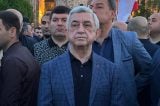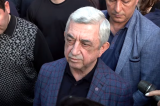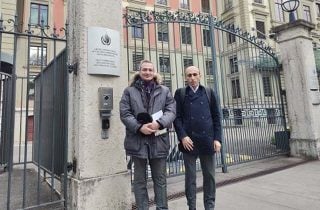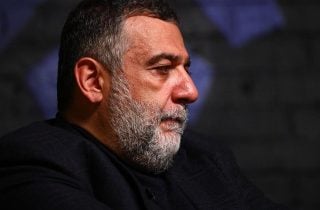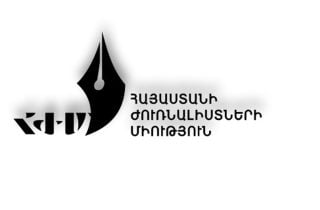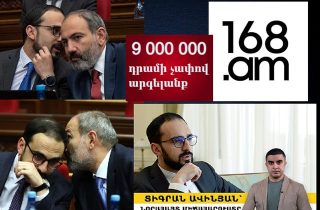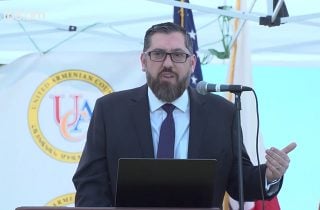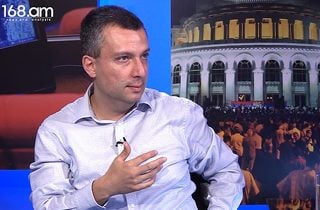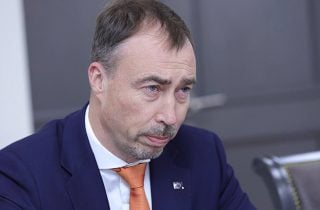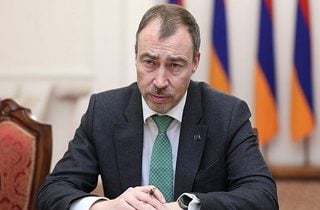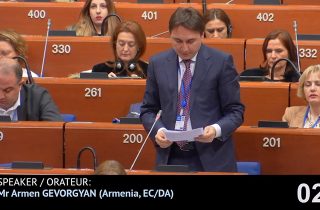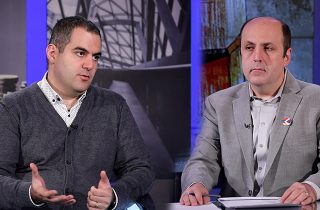WE ARE CHARLIE, WE ARE LIBERTY, WE ARE DEMOCRACY
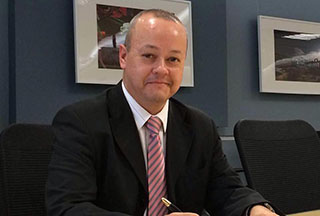
For what reason does the world say today “je suis Charlie”?
After the terrorist attack on the cartoonists from the periodic “Chalie Hebdo” in Paris, and after the shooting of a French policeman (who was also Muslim) and the other coordinated attacks in Paris this week, it becomes important to reflect about the importance of the preservation of democracy and the freedom of speech.
Why does the world says today, “je suis Charlie”? Was it because, suddenly, the readers became assiduous fans of the journal opinions and their charges, due to a supposed good quality of its texts and provocations?
Obviously not.
It could have happened with any other journal: the NY Times, the London Times, Al Jazeera, 168 Hours, etc.
The attack was not only targeted at innocent people and a communication vehicle; the cartoonists and journalists who, with their pencils and pens, make dictators and oppressive regimes tremble.
The clear target of the recent terrorist attacks was, obviously, against freedom, liberty and democracy.
The fact related to the aggressive characteristic of their publications, eventually provocative factors to sacred religious values for millions of people, for the largest religion in the world today (Islam), is not a reasonable aspect to justify the terrorists attacks.
“Charlie Hebdo” is, traditionally (since 1970), a satirical communication vehicle, which used to publish critical cartoons related not only to religious issues, but also to political ones.
So, it seems so important to draw some reflections about these facts:
There are limits to the freedom of expression. Yes. And in France, secular country under a constitutional regime, with a judicial system that guarantees the democratic rule of law, any abuse in the exercise of this fundamental right by any media company, may be brought before the authorities for the necessary repairs.
In fact, in France, the freedom of speech is a fundamental right that suffers more restrictions than in other democratic countries, like Germany and the United States, where the constitutional guarantee is more widespread. In France, it suffers more restrictions.
Even in its first decision, the French Constitutional Council, established by the Constitution of the Fifth Republic adopted on 4 October 1958, vested with various powers, including, in particular, the review of the constitutionality of legislation in France, it was decided in 1982 that “… the exercise of freedom of expression, as embodied in the art. 11 of the Declaration of Human Rights … “(the Declaration of 1789 makes up the block of constitutionality guarantees in France), must be exercised in harmoniously with” … the constitutional value of goals that are the protection of public order, respect the freedom of others and the preservation of the pluralistic character of the current socio-cultural expression that these media, for their considerable influence, can achieve. “(http://www.conseil-constitutionnel.fr/conseil-con..decision-n-82-141-dc-du-27-juillet-1982.7998.html – accessed on January 9th, 2015).
Thus, as in any democratic country with stable institutions and independent Powers, there is a LEGAL WAY that guarantees reparations for abuses. If each group, in a pluralistic society such as the French and other democracies, decides to repair alleged offenses through the innocent murder (or, even, not innocent), with the invasion of communications companies, we will have the end of civilization.
It is not through the bloodshed that the differences will be eliminated; only through the dialogue and, if this is not enough, through the due process of law and constitutional powers.
Another point that demands more careful reflections: after all, who was offended by Charlie Hebdo? The common Muslims? The Islamic world?
If so, why the Islamic world itself, immediately condemned such attacks? Muslim leaders in France and across Europe did it; the Arab League did.
Together, sharing the same opinion, imagine, the United States, Israel and even Iran.
Those ones who felt offended were the fanatical sunni fundamentalists, who do not admit images or idols; who cannot live with democracy and pluralism; they are the fanatics that shot girls in their head by not admitting that they attend a school. Reiterate that: “a portion” of fanatics.
Although we are not experts, nor theologians, we doubt that Islam enshrines the massacre of-humans just due to disagreements of world views and ideas.
The fanatics who murdered yesterday 12 human beings and helped to turn worse the world, whose act will cause serious consequences in the near future, especially in Europe, are the same that exploded the giant statues of Bamiyan Buddhas in March 2001 (carved the rock in the year 544 A.D.); the same that have imposed the use of Burka to Afghan women, forbidding them to leave the house or to work in schools and hospitals; they are the same that shot Malala Yousafzai on September 10th, 2012, because the young girl wanted to go to school, to study, to broaden the horizons of her life.
This is the same radicalism that destroyed in September 2014, the Church and Armenian Genocide Memorial in Der Zor El, in Syria, where thousands of Armenians were sent during their genocide, in April 1915 (sunni fundamentalists from ISIS), perpetuating the Armenian genocide (recognized by France), since the genocide denial is the final stage of its continuity.
The radicalism is harmful in all its forms: religious (Christian, Islamic, Jewish etc.); political, left or right wings, it does not matter.
We can remember the fundamentalist Christian and far-right extremist, Anders Behring Breivik, the Norwegian who killed 77 innocent on July 22, 2011, in Norway, or the German neo-Nazi network discovery in 2011, where the death of two of its extremist members, Uwe Mundlos and Uwe Bohnhardt, reveled the murder of at least 10 immigrants living in Germany, between 2001 and 2011.
In essence, fanaticism and radicalism of these groups have the same destructive force; the methods are similar. Only their pretexts change.
Meanwhile, among their common goals, they always try to impose silence to dissenting voices. Innocent lives do not matter to these extremist groups. They hate democracy.
For those who understand that Charlie Hebdo should not publish its cartoons as they have been doing for the last 45 years, we remember that even such an opinion could only have been formulated and expressed for one reason only: because it has been guaranteed the access to their publications, by a Constitution and a democratic regime.
Only the circulation of ideas, opinions and criticisms enables the maturation of the human race and, by consequence, of the human societies.
Therefore, we are for freedom, we are Charlie.
Flávio de Leão Bastos Pereira Attorney at Law, Professor of Constitutional and Human Rights Law at Mackenzie University (São Paulo-Brazil), Master Degree in Political and Economical Law, Member of International Network Genocide Scholars – InoGS, Researcher at the Federal University of São Paulo (UNIFESP), at the Research Group Wars, Massacres and Genocides at the Contemporary Era. Member of Inter-American Bar Association – IABA [email protected]




